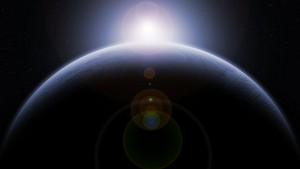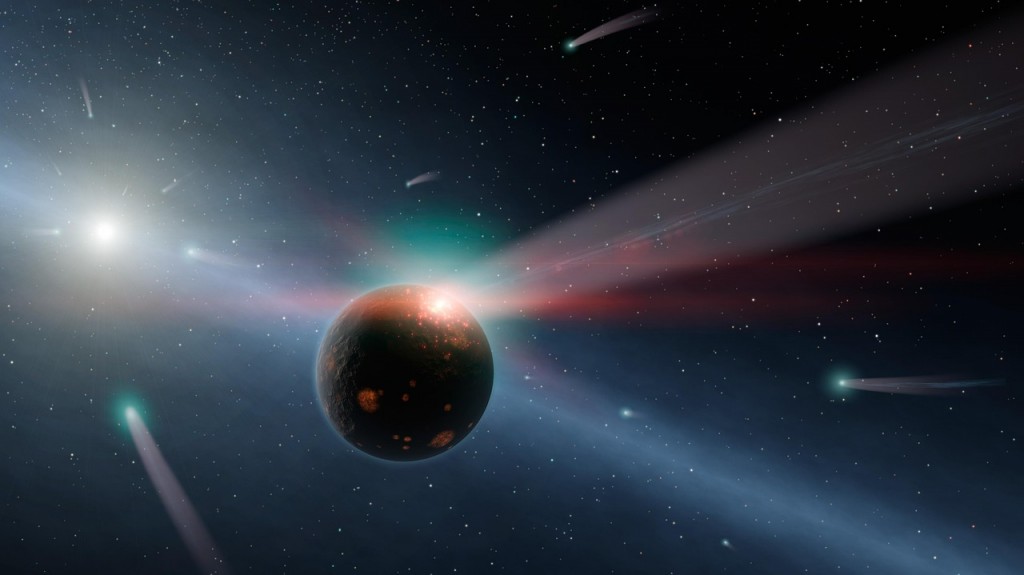Editor’s note: This post has been updated and broken links removed. Please see our policy on broken hyperlinks for more.
If you’ve always had a fear of the earth ending one day due to a gigantic meteor, researchers have some bad news.
Over the last two decades, astronomers believe that they’ve been accidentally under-counting the number of space rocks headed toward Earth, according to Discovery News. Furthermore, these aren’t just any old space rocks — they are the type that have the potential to wipe out our planet on a whim.
 These giant comets are known as centaurs. They move throughout space on unstable orbits and measure between 50 to 100 kilometers in size. Although they would likely disintegrate once approaching Earth, their pieces would inevitably impact the planet, according to the Royal Astronomical Society.
These giant comets are known as centaurs. They move throughout space on unstable orbits and measure between 50 to 100 kilometers in size. Although they would likely disintegrate once approaching Earth, their pieces would inevitably impact the planet, according to the Royal Astronomical Society.
“In the last three decades we have invested a lot of effort in tracking and analyzing the risk of a collision between the Earth and an asteroid,” said University of Buckingham Professor Bill Napier, one of the scientists who made the discovery. “Our work suggests we need to look beyond our immediate neighborhood too, and look out beyond the orbit of Jupiter to find centaurs. If we are right, then these distant comets could be a serious hazard, and it’s time to understand them better.”
Centaurs entering the inner solar system may only be deflected into Earth’s orbit once every 40,000 to 100,000 years. However, this doesn’t mean that impact is impossible, nor does it indicate that debris could not smash into our planet.
Scientists believe that the last centaur to impact our planet was around 30,000 years ago. This information has been gathered through the study of the terrestrial environment and a disruption in the progress of ancient civilizations. Notably, many experts believe this type of comet could be responsible for the extinction of the dinosaurs.
“A centaur arrival carries the risk of injecting, into the atmosphere … a mass of dust and smoke comparable to that assumed in nuclear winter studies,”stated the researchers, according to Discovery News. “Thus, in terms of magnitude, its ranking among natural existential risks appears to be high.”
But don’t freak out just yet. The experts added that there is no risk is known to be “imminent,” despite the unpredictability of centaurs. Additionally, most centaurs stay between Jupiter and Neptune — it’s when they are caught up with outer planets that they become “unstable,” according to the Swinburne University of Technology. Phil McKinny, meteorology student at Birmingham University, notes that they rarely react sporadically for this reason.
For now, there appears to be nothing to worry about. However, it doesn’t hurt to know what’s floating around in the universe around us, right?
Sources
Le Roux, Mariette. “Earth-Smashing Space Rocks Undercounted.” Discovery News. Published December 22, 2015.
“Giant comets could pose danger to life on Earth.” Royal Astronomical Society. Published December 22, 2015.
“Centaurs.” Swinburne University of Technology. Retrieved Jan. 25, 2016.
